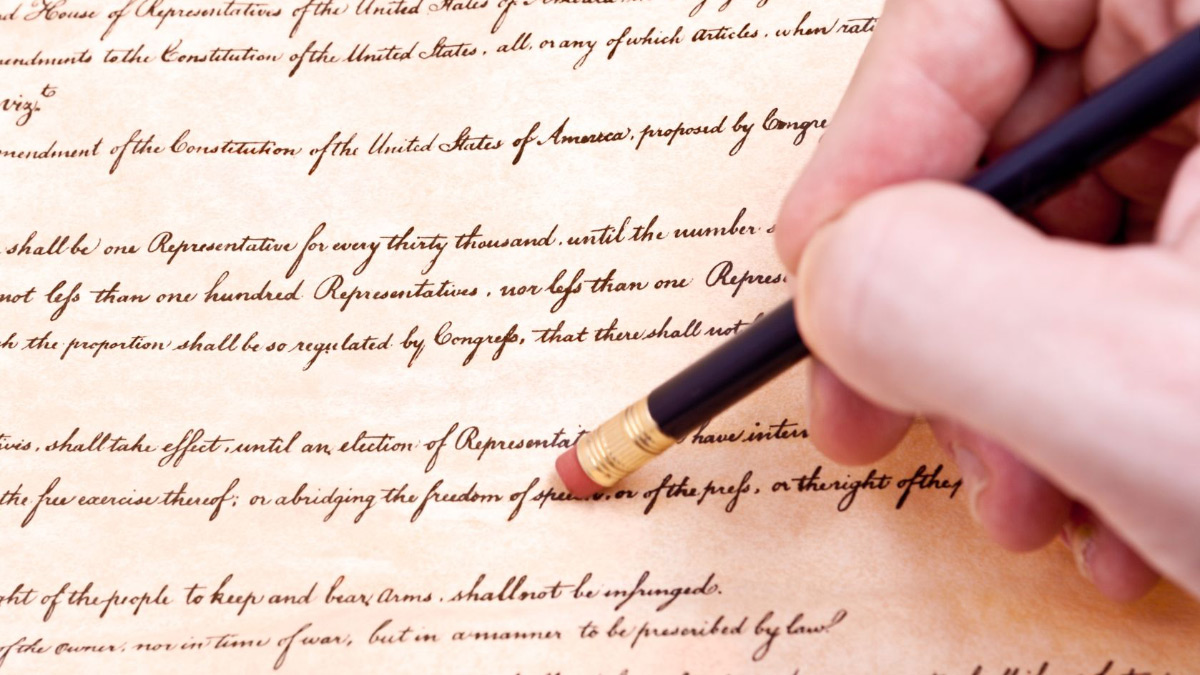Being somewhat of a First Amendment absolutist, I was at first thrilled when I heard that President Trump was considering an executive order denying federal financial research assistance to colleges permitting an abridgment of free expression on their campuses. Unfettered peaceful forms of intellectual expression are at the core of what universities are all about. Learning and advancement comes by evaluating alternative viewpoints: does the Sun revolve around the Earth, or the Earth around the Sun (a debate resolved long ago)? Is immigration good or bad, welfare enhancing or does it endanger the nation? Is global warming an existential threat to the human race or an overblown issue? Campuses are where these issues need to be debated, and even seemingly crazy perspectives need to be considered. Long live the First Amendment! This thinking made me a fan of the Chicago Principles—students need to be face uncomfortable and distasteful ideas and assess their validity—and that means free campus inquiry and expression.
But then I had second thoughts. After all, I believe on balance federal involvement in higher education has had net negative effects since the creation of the U.S. Department of Education in 1979. American universities are vastly more expensive than 50 years ago, students are learning less, we have turned out too many college graduates unable to get good jobs, schools are increasingly dominated by expensive anti-intellectual bureaucracies, etc. And I believe the federal government played a role in these things happening—a role that would not have been played 75 years ago. I met recently with the very top officials in the U.S. Department of Education, good people moving things in a more positive direction, but I felt that even they think they can improve campus life somehow through central direction from Washington, D.C. I disagree.
I got to thinking about problems a “No federal aid without free speech” edict might cause. Suppose a campus adopts the Chicago principles unequivocally supporting free expression. Suppose, then, however, an outsider comes to a campus event and disrupts it—the “heckler’s veto.” Suppose the event then is cancelled. Does the college endanger its federal research funds, even though it did not in any way encourage the disruption of free discussion? Could it be faulted because it did not hire an army of security to prevent disruption of speech? Are we going to create a new Assistant Secretary of Education for Free Speech dictating all sorts of new regulations, leading to colleges creating New Associate Vice Provosts for Free Expression? Will we do little to create vibrant debate, actually reduce the diversity of approaches to learning that characterizes American higher education? Would schools with a strong religious orientation, for example, be harassed if they did not promote diversity in religious views in campus presentations? As the American Council of Education’s shrewd Terry Hartle put it, “Would Yeshiva University be required to host a Holocaust denier?”
The same concerns apply, albeit probably to a lesser degree, to state governments in their governing the so-called state universities under their control. Again, it is very tempting to say, “no state university can receive governmental appropriations that does not permit and indeed encourage freedom of expression of views, even views abhorrent to most members of the campus community.” But will that lead to new bureaucracies, new harassment of university presidents by ambitious politicians looking for a hook to achieve public recognition? Is the cure worse than the disease?
While pushing universities to adopt and administer the Chicago Principles or similar rules is a good idea, many campuses, including the most influential and prestigious ones, have relatively little idea diversity in their campus life. That is why I favor privately funded debate series that deliberately present alternative viewpoints on major issues of the day. I favor lecture series that deliberately emphasize the presentation of viewpoints often getting scant attention on campus, most often conservative perspectives out of favor with the predominantly left-of-center orientation of most American universities.
President Trump has identified an issue needing attention, but I worry that the problem could be aggravated, not relieved, by the proposed solution.












